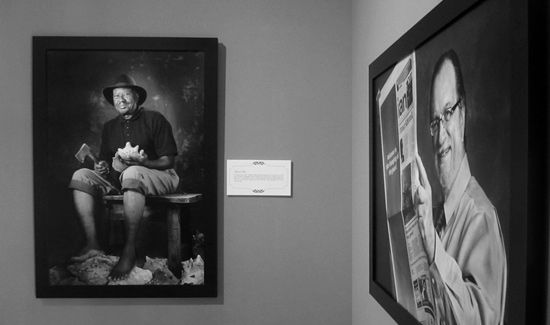 The media bears a lot of responsibility for the unfocused and consequently ineffective collective response to our continuing crime wave.
The media bears a lot of responsibility for the unfocused and consequently ineffective collective response to our continuing crime wave.
Of the two murders that took place over the weekend, one victim was killed after apparently shooting somebody in the head and the other was being sought recently as a suspect in a murder case. Yet both dailies’ coverage failed to focus on the obvious implications of these facts, sensationalizing crime in general instead.
The Tribune chose a headline repeating the (completely unestablished) claim that one victim was killed ‘for a plate of food’, while making no mention of the (completely established) fact that this young man was only last year being sought by police in connection with murder. One sensed the scary message that Oliver Twist would have been a gruesome statistic in these parts. One got no sense of what a senseless (and easily fixed) revolving door our judicial system has become.
As for The Guardian, it focused on a somewhat extensive analysis of murder trends for this year, juxtaposed to last year. But it did no homework to show if the group of men involved in the attempted murder-cum-revenge killing of the weekend were actually recently in custody and released, or had been charged or convicted of violent offences, or given laughably short sentences for possession of firearms.
Over and over again, the media casts our crime problem in a broad, amorphous context, instead of focusing society’s attention on where it belongs: the courts.
Over and again, judges have sought to impose the lightest of sentences for crimes involving the possession of illegal firearms, as if they are blissfully unaware that this single matter has become a national emergency. Over and again, when they have imposed the laughably light 4-year minimum, they have been quick to assure the offender that it is only because they are constrained by statute to do so.
Likewise, the continued granting of bail to violent, repeat offenders can be traced to a judicial culture that has effectively lost sight of the ‘public interest’ consideration in exercising any discretion they are given. Clearly, it is time to amend the constitution and remove that discretion forever.
If the media did a better job in showing the clear, unambiguous and demonstrable link between the judicial revolving door and people actually getting killed, politicians would find it easier to muster the political will to address the shortfalls of the judiciary and, where necessary, to limit its discretion in the public interest.
By: Andrew Allen


